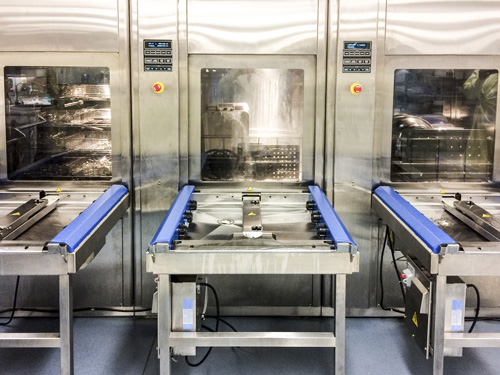Conax Technologies solves a leakage problem a customer was experiencing with a competitor’s seal fitting.
Industry: Pharmaceutical
Application: Autoclave
Customer Requirement: A customer called looking to replace a wire seal fitting (sealing gland) purchased from one of our competitors. The customer was experiencing leakage problems with the fitting, which was part of an assembly using RTD probes to measure temperature within an autoclave.
Conax Design Solution: Conax determined that our TG fitting with 12 wires was the solution to the immediate problem. The customer had been using 28 AWG stranded wire. Conax recommended a change to 24 AWG solid wire to ensure a better seal.
After further discussion on exactly how he was using the fitting, Conax discovered that the customer was purchasing a threaded fitting and sending it out to have the threads removed and a 2 inch triclover sanitary flange added. Once the fitting returned, the customer would thread the wires through the fitting and attach the probes. Our sales rep explained that Conax could provide the entire fitting, with the flange and all necessary wiring ready for installation.
Additional conversation resulted in a request that Conax quote on the RTD probes as well. During this process, we discovered that the original RTD probe design included a heat shrink wrap where the leadwire attached to the element. This was further aggravating the leakage problem, as moisture could get under the heat shrink. Conax recommended a complete 3 wire RTD assembly using an encapsulated design rather than the heat shrink. The probe is connected to 24 AWG PTFE-insulated leadwire that extends 30 feet, passes through the TG fitting with a sanitary flange, and then extends an additional 32 feet to the control panel. The entire assembly is pre-assembled, providing the customer with a significant savings in labor.

